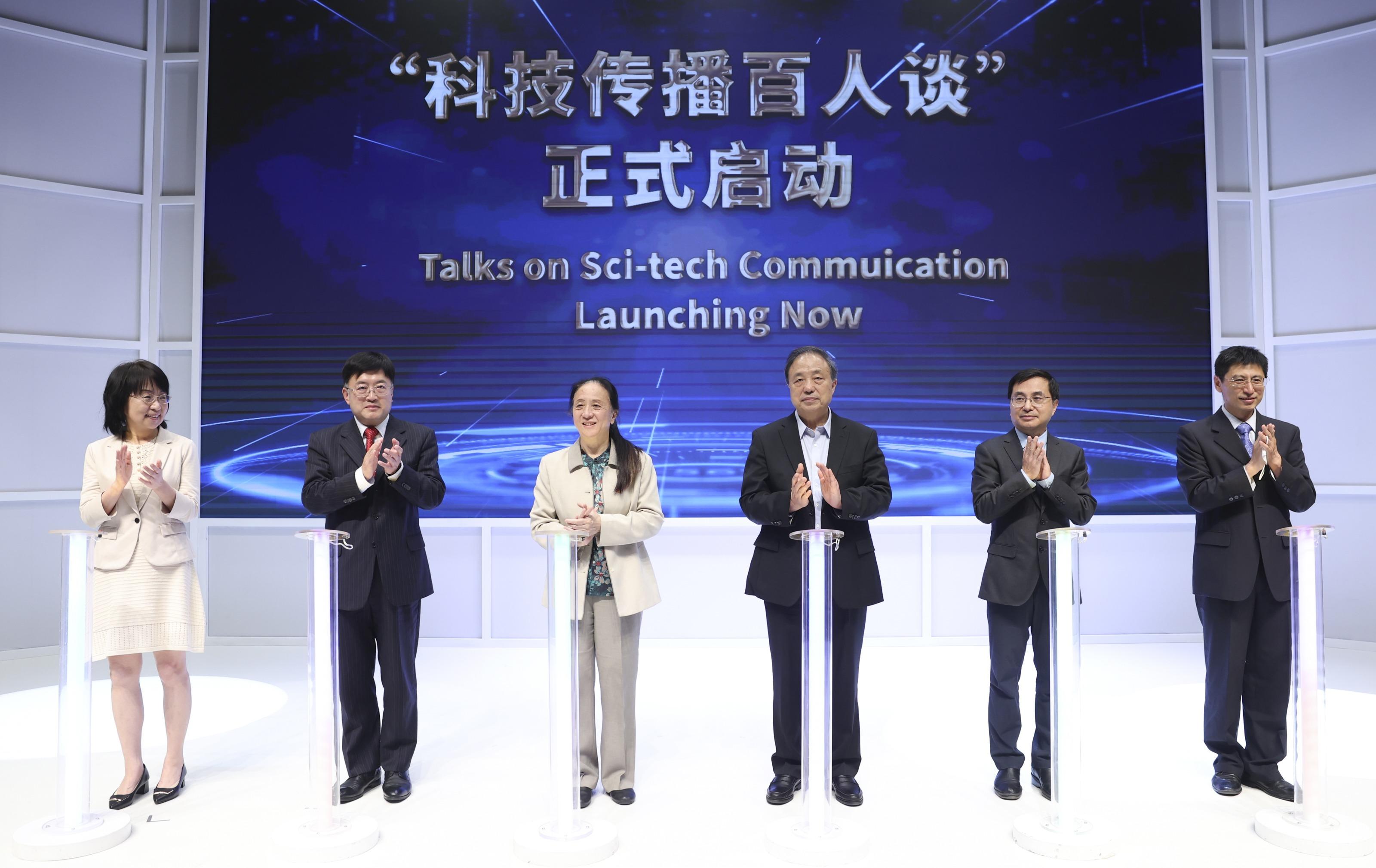 Guests of honor launch the Talks on Sci-tech Communication series on Saturday in Beijing. (FENG YONGBIN / CHINA DAILY)
Guests of honor launch the Talks on Sci-tech Communication series on Saturday in Beijing. (FENG YONGBIN / CHINA DAILY)
China has improved international communication through the practice and application of modern science and technology, which has also helped disseminate and promote the Chinese concept of modernization globally, experts said on Saturday.
They made the remarks at Talks of Sci-tech Communication, a series of events held by the Research Institute of International Sci-tech Communication, which was established by the China Association for Science and Technology and China Daily in January of last year, that brings domestic and international communications experts together.
Guo Huadong, chairman of the Chinese Committee of the International Science Council and an academician at the Chinese Academy of Sciences, said the world is vigorously promoting open science and sci-tech communication is becoming increasingly important, and therefore every sci-tech practitioner should also be a sci-tech communicator.
Learning to use the power of big data to achieve sustainable development goals is an important issue for the regions involved in the Belt and Road Initiative, as well as the world, he said. China places great importance on scientific and technological innovation, and in 2021, it set up the International Research Center of Big Data for Sustainable Development Goals, to leverage sci-tech power in achieving these goals.
The center sent seven sets of data on SDGs to the United Nations in March, and its data analysis reports are accessible to countries all around the world.
"I think data is the common language of humanity, and it is also a form of knowledge dissemination. At the same time, we need to let data generate productivity and turn it into information and knowledge," he said.
Liu Shouxun, vice-president of the Communication University of China, said that the first thing that needs to be done to promote Chinese modernization through international communication is to tell China's stories well.
"There are different versions of China's stories. The strength of developed Western nations means their perspective of China has long dominated the international stage, arrogating the right to define the Chinese story in terms of international public opinion," Liu said. "The competition between this version and China's version of its story is the first problem that needs to be resolved through the development of international communications. We need more concepts similar to Chinese modernization, which will not only spread, but also be understood by the world."
Liu said China's international communications should not be limited to the first-level discipline of news communications, but should draw upon philosophy, sociology, politics, literature and many other disciplines.
Strong knowledge production capacity will enable Chinese communicators to generalize and clearly explain concepts related to China, such as Chinese modernization and its connotations, and then reappropriate the right to speak about and define China's image in international communications, he said.
Hu Zhengrong, director of the Institute of Journalism and Communication at the Chinese Academy of Social Sciences, said that the sci-tech story is a part of China's story and is significant in showing the world a reliable, admirable and respectable image of the country.
Sci-tech and communication are mutually empowered, Hu said, adding that science and technology have empowered communication in fields such as production, circulation and consumption, while communication improves the ability and level of sci-tech exchange.
Behind the story of science and technology are the common pursuit and values of humankind. The values behind China's sci-tech stories are universal and appeal to international readers, he said.


